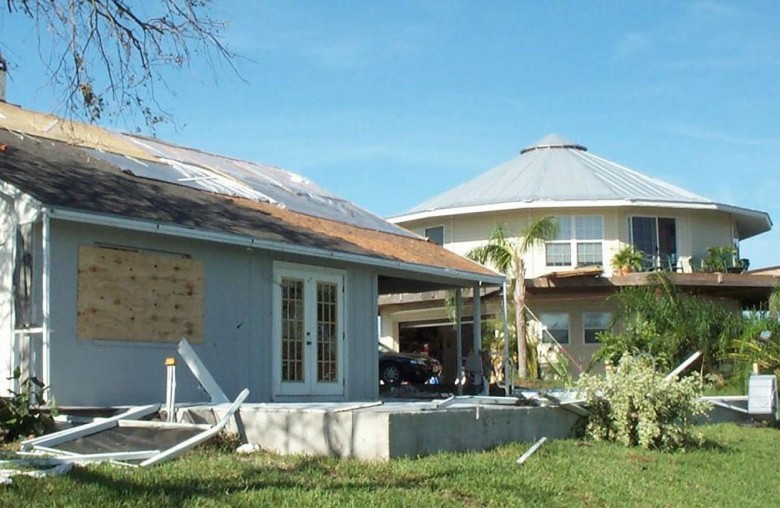Experiencing a hurricane can be frightening. Preparation can help you stay safe. Planning and preparing for the next hurricane is something best done ahead of time. Below are some important tips and guidelines that we have collected to help you prepare.
Tips for Seniors
The first step should always be to establish a communication plan. Have one person who is a local contact and one that is an out of area contact. Long distance calls may be easier to connect when local disaster areas are impacted. If you are living in a senior living community, ask for a copy of the emergency evacuation plan communication strategy. Become familiar with local senior living or nursing homes that offer sub-acute or respite care. A loved one may temporarily need a place to stay or need skilled nursing when recovering from an injury in an event like a natural disaster.
Respite rooms are in high demand during a natural disaster so it’s best to know what your options are before there is an emergency.
Stock your home and car with disaster supplies, including the items listed below. If you can, stock up before you know a storm is coming to avoid crowds and get the items you need. You should also keep support items like wheelchairs and walkers in a designated place for easy access.
- An emergency water supply
- Personal care products
- Emergency food
- A first aid kit
- Flashlights
- A battery-powered radio
- Your medical insurance information, including Medicaid/Medicare cards
- Prescriptions and prescription cards for refills
- Medical tags with information about healthcare needs.
Pet Safety Tips
Special considerations need to be taken when preparing an evacuation plan that involves animals. Storms disrupt everyone’s routine and pets are no different. They can react impulsively and more unexpectedly than people during an emergency.
Assembling a pet-specific preparedness kit will put your mind at ease before a disaster strikes.
- A list of pet-friendly hotels/motels in your region. Consider Airbnb’s or VRBO’s (Vacation Rentals by Owner). Check what the restrictions are such as number and physical size or species of pet. View this useful website.
- List of boarding facilities and vet hospitals. If your pet can’t stay with you, make sure to call ahead and make a reservation. Pet insurance is also something to consider. Although it can be expensive, if your pet is severely injured or needs surgery during a disaster, insurance can save you hundreds, possibly thousands of dollars.
- Medical records / Medication. If you board your pet, you may need to show its vaccine history. Scan them into your phone and print a hard copy.
- Collar and leash with proper ID. Make sure the information is up to date, including your cell phone number and a backup number of a friend or relative. Consider getting your pet microchipped. Make sure the registration is in your name. But REMEMBER, the average person may not have the ability to scan for a microchip but will be able to read a basic ID tag.
- Current photos of you and your pet. If you become separated, this will prove ownership and assist emergency workers and neighbors locate your pet. Have copies on your phone and printed out.
You can use a small and lightweight GPS tracker of your dog. Glow in the dark collars and leashes are also a great idea in an emergency when power is affected.
Help children learn about and prepare for hurricane disasters
Psychologists agree that children are the most susceptible to psychological trauma associated with natural disasters and a hurricane certainly falls into this category.
Numerous studies have shown that children experience a great deal of stress because of a hurricane. They are young so they do not really understand. They are displaced, evacuated from the only place they call home, have seen their neighborhood damaged or destroyed and have lost personal belongings. In some hard-hit areas such as Louisiana following Hurricane Katrina, thousands of toddlers were left homeless. It is not shocking that many develop symptoms of post-traumatic stress disorder (PTSD) and depression. Symptoms include recurring bad dreams and feeling anxious.
Parents and caregivers can log online at NCTSN.org (The National Child Traumatic Stress Network). This website is a good resource for the public, professionals, and others who care about children and are concerned about child traumatic stress.
Have a Kid-Friendly Preparedness Kit
Some items will depend on your own needs but here’s a starting point.
- Spare clothing pack: Pack those old, less popular clothes they don’t usually wear. When the clothes they’re wearing get dirty or wet, even their least favorite duds are better than nothing. Also, pack extra socks and underwear.
- Kid-friendly foods: For example, canned ravioli, mac & cheese, fruit roll ups, trail mix, PB&J, applesauce, baked cheese crackers, and dry cereal. Keep in mind what foods your kids like to eat at home and those they don’t. If your child doesn’t like peas at home, don’t expect him to eat them from your prep kit.
- Baby wipes: If there isn’t running water, they’re perfect to wipe down you and those that created the stench in the backseat.
- Fun & Games: Pack of cards, board games, blank paper pads with crayons, and magnetic car games. Keep them from being bored, especially on long car rides, by packing a variety of activities to get the imagination going and pass the time.
- Comfort items: Favorite stuffed animals, blankets, toys, or anything else that brings your child comfort.
Valuable links for parents and caregivers
- Hurricane Emergency: News, Safety Tips and Relief Response | Save the Children
- The ready.gov website has an educational and fun resource for kids of all ages to help prepare for a disaster. There are games, like the Disaster Master Game and Build a Kit game. The Ready Kids penguin mascot, Pedro, will walk them through it.
